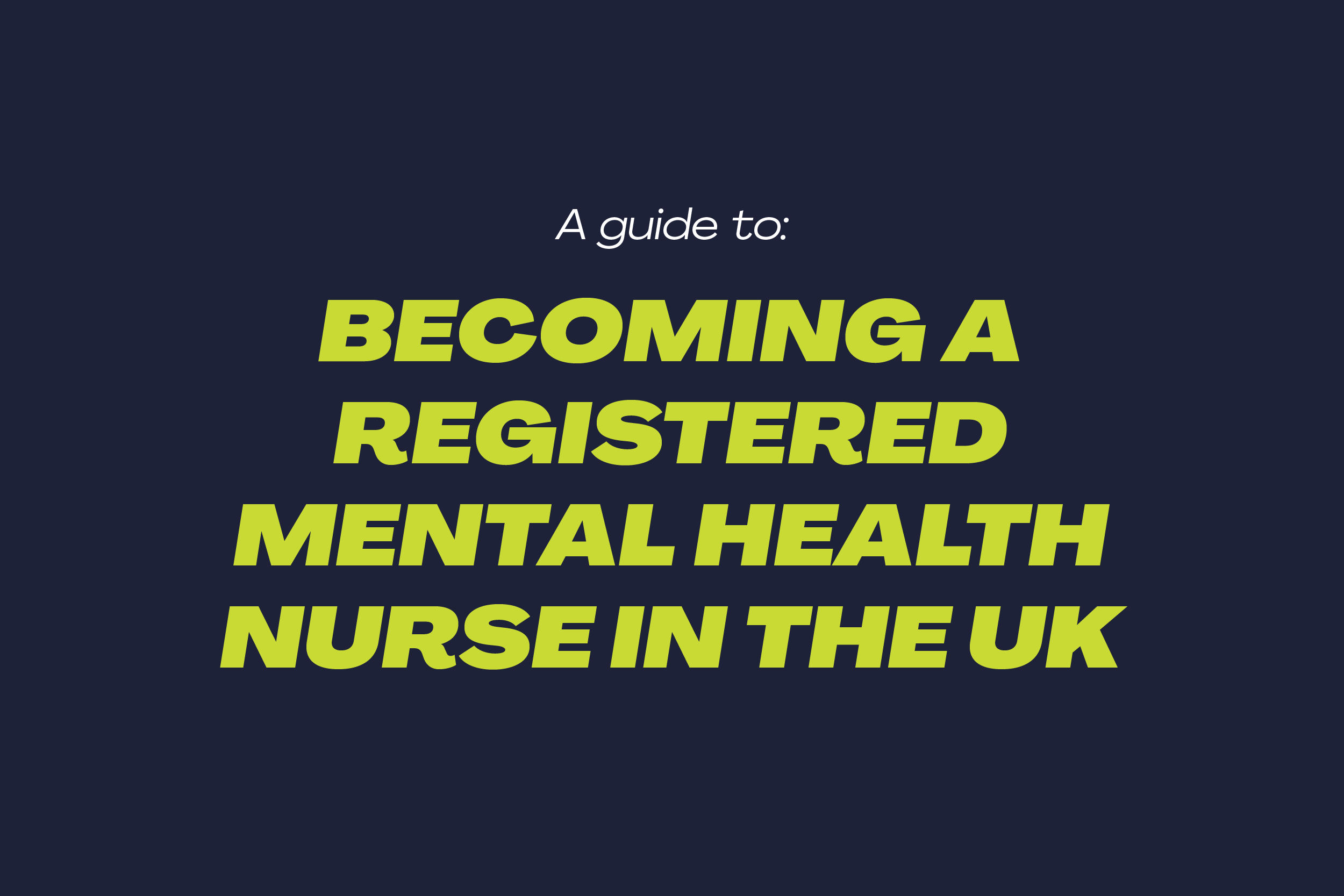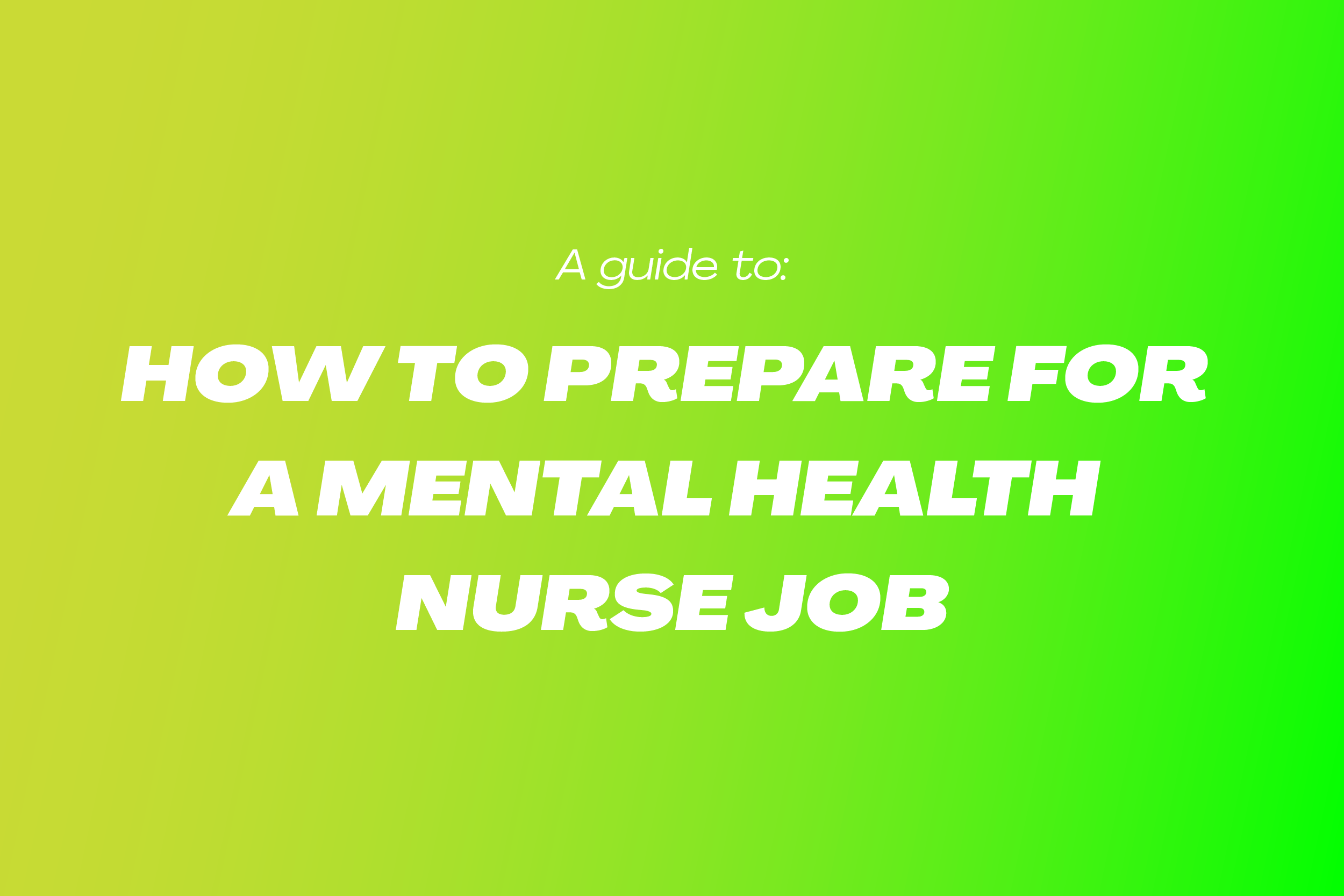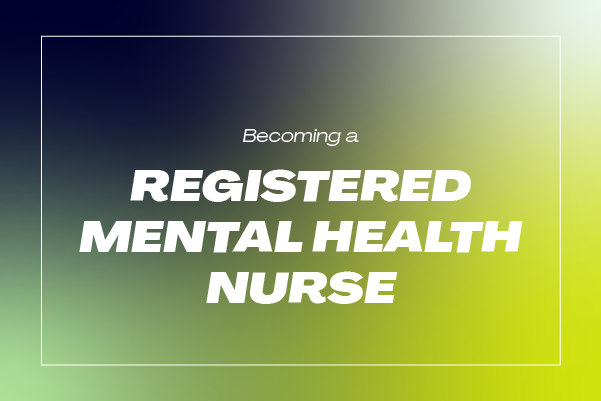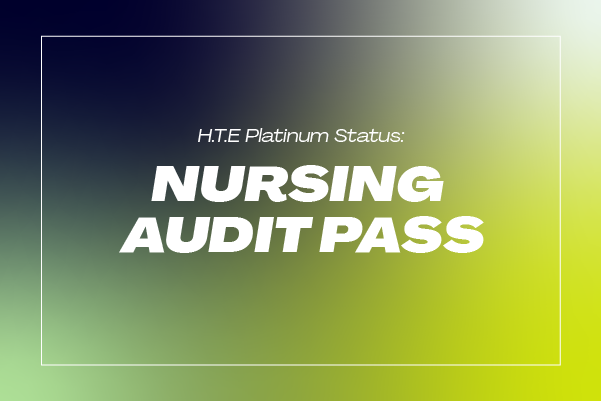Filter Job search
Read more registered mental health nurse guides
Looking for more than just jobs? These guides are here to give you tips, advice, and insigths to help you make the most of your registered mental health nurse career.
What is a Registered Mental Health Nurse?
In the UK, a Registered Mental Health Nurse (RMN) is a specialist who has completed extensive training. They earn a nursing degree with a focus on mental health. This qualification is essential for addressing the complexities of psychiatric care and emotional support for individuals experiencing mental health challenges.
What Does a Mental Health Nurse do?
Mental Health Nurses are vital in the UK in providing comprehensive mental health services for acute and chronic conditions. Their work is critical in helping patients with mental health problems. They provide medical treatment and emotional support to patients throughout their care.
Training and registration
To become an RMN, one must complete a Bachelor's degree in Nursing (Mental Health). This programme provides in-depth knowledge of psychological theories, medical treatments, and practical skills for effective mental health care. After graduating, candidates must register with the Nursing and Midwifery Council (NMC) to ensure they meet the necessary standards to work as nurses. For more details on career paths and professional development, visit the Royal College of Nursing (RCN) - Mental Health Nursing.
Role and expertise
Mental Health Nurses receive training to understand various mental health conditions such as anxiety, depression, schizophrenia, and bipolar disorder. They are trained to use different therapies that help people recover and improve their quality of life. To learn more about psychological theories and therapies, visit the British Psychological Society (BPS) - Psychology and Mental Health.
Registered Mental Nurses work in NHS mental health units, private clinics, community centres, and residential homes. They adapt their methods and approaches to suit the needs of various settings and patients.
Essential skills
In addition to their clinical expertise, Registered Mental Health Nurses (RMNs) possess empathy, patience, and exceptional communication skills. These qualities are essential for building strong, trusting relationships with patients. They also have strong problem-solving skills and resilience, crucial for navigating mental health care challenges.
Continuous professional development is encouraged and often required, keeping nurses abreast of the latest advancements in mental health treatment and care methodologies. To explore competency frameworks for mental health nursing, visit Skills for Health—Competency Frameworks.
Contribution to healthcare
Registered Mental Health Nurses make a profound contribution to the UK healthcare system. They help patients with their mental and emotional health.
They also fight for patients' rights and work to decrease negative views of mental health conditions. RMNs are integral in promoting mental health awareness, supporting community health, and leading public health initiatives. For more information on mental health advocacy and support, visit Mind—For better mental health.
Clinical interventions
Mental Health Nurses conduct clinical assessments to diagnose mental health conditions, develop care plans, and monitor patient progress. They administer medications, provide psychotherapy, and implement various therapeutic interventions. The nurses are well-trained in cognitive behavioural therapy (CBT) techniques. They often help in crisis interventions and offer immediate support during mental health emergencies.
Supportive care
Apart from clinical duties, Mental Health Nurses offer ongoing emotional support and guidance to patients and their families. They are critical in educating patients about their conditions, treatment options, and coping strategies. Aftercare programs provide ongoing support to help patients reintegrate into the community and effectively manage their conditions.
Leadership & advocacy
Mental Health Nurses often take on leadership roles within their teams, coordinating with healthcare professionals to ensure seamless, holistic patient care. They advocate for patient rights and are active in policy discussions to improve mental health services. Their unique insights into patient needs and care dynamics make them invaluable in shaping health policies and practices.
Impact on patient outcomes
Mental Health Nurses are essential for helping patients with mental health issues. They can improve patient outcomes and lower hospital readmission rates. They also enhance the overall quality of life for these individuals. Their holistic approach ensures that care is person-centred, culturally sensitive, and aligned with the best practices in mental health care.
Registered Mental Health Nurse jobs
Mental health nurse employment opportunities include inpatient unit nurses, community mental health nurses, psychiatric liaison nurses, and mental health crisis team nurses.
Typical registered mental health nurse salary in the UK
In the UK, RMNs earn an average salary of around £32,000 to £38,000 per annum working full-time, depending on experience, location, and employer. RMNs working for the NHS can expect the NHS to pay them through the Agenda for Change (AfC) banding system. Newly qualified mental health nurses usually start at Band 5 and can increase as they gain experience.
Working as a locum Mental Health Nurse
Working as a Locum Mental Health Nurse offers a diverse and rewarding career path for healthcare professionals passionate about mental health and well-being. As a locum, you can pick short-term jobs in mental health places like hospitals, community centres, and care homes. Your role will involve assessing patients, developing care plans, and providing therapeutic interventions to support their mental health journey.
Working as a locum allows you to gain experience in different specialties, work with diverse patient populations, and enhance your clinical skills. Your World is your trusted partner in finding locum Mental Health Nurse roles that align with your preferences and expertise.
Your World - Your partner for Registered Mental Health Nurse roles
At Your World, we're committed to connecting skilled and passionate RMNs with excellent job opportunities across the UK. As a preferred supplier to the NHS, we can provide priority access to the newest and hottest jobs in the industry. Join our growing community of healthcare professionals to gain guidance and support with your next career steps.



